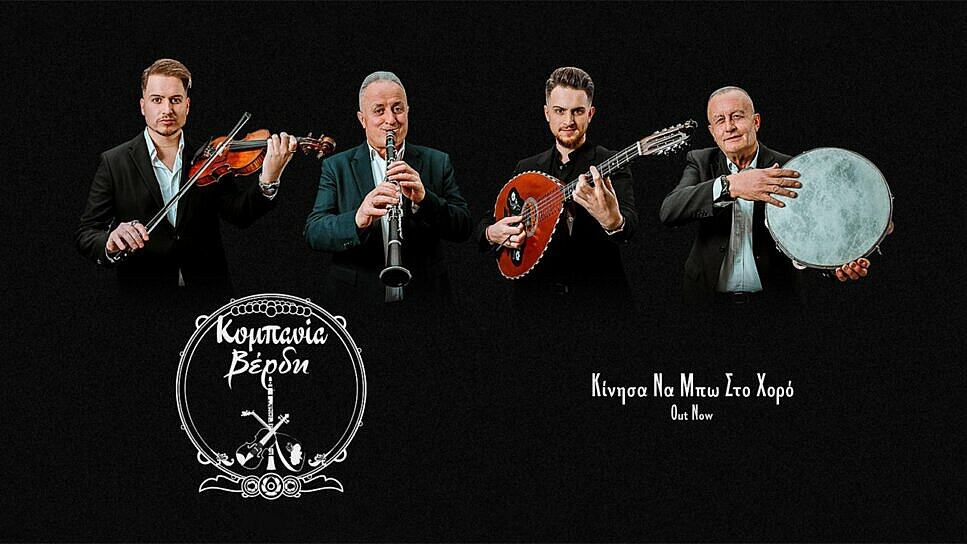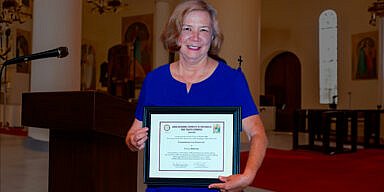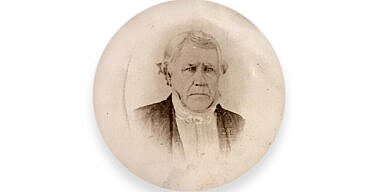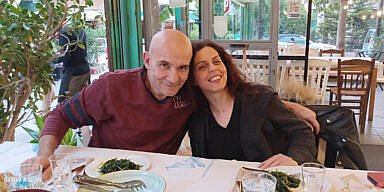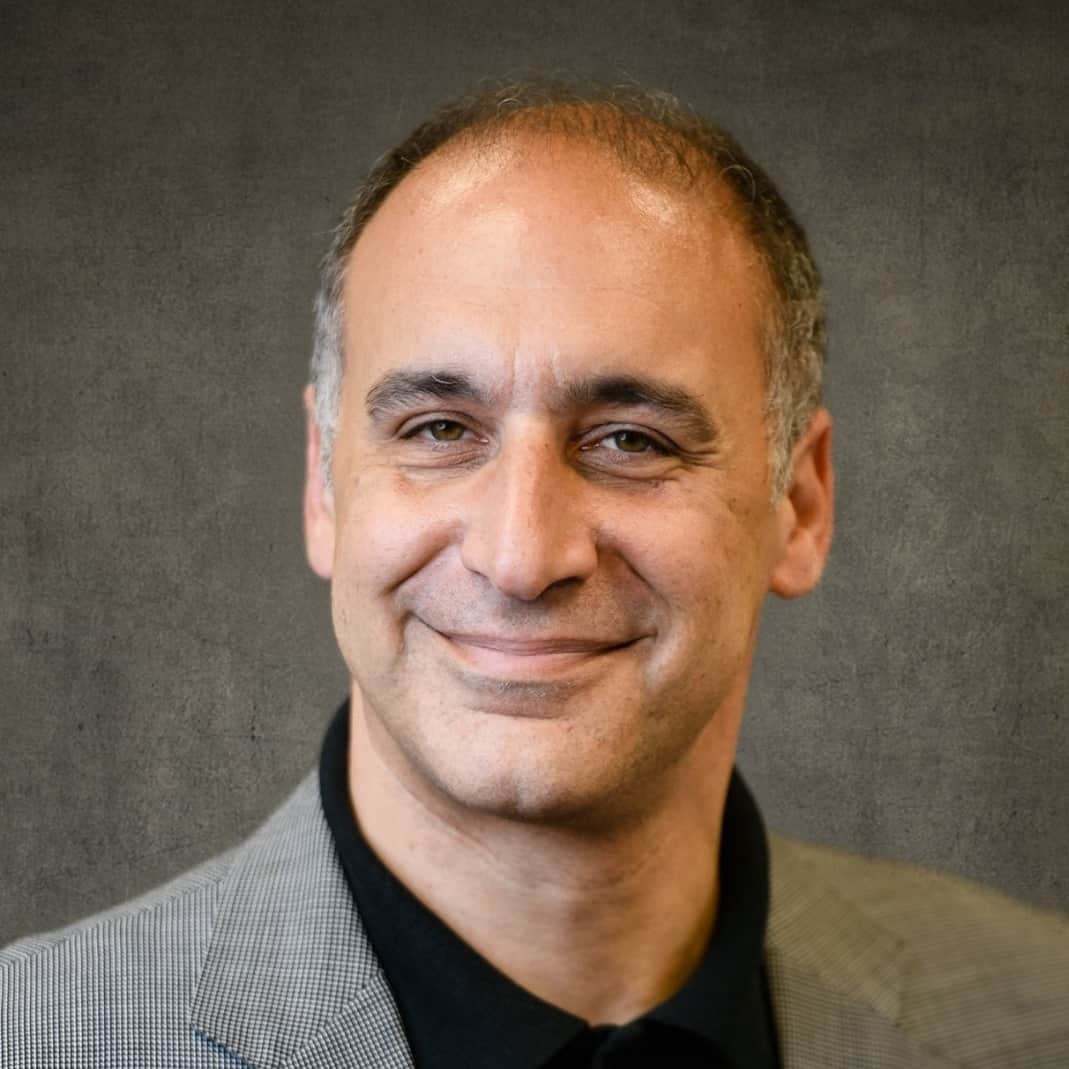Leave it to Greeks to set up a family business. These are ubiquitous, whether in the homeland and the Diaspora. So it is with Kompania Verdi, from the hauntingly beautiful town of Ioannina, Greece. This family affair began in 1976, with two brothers, Kostas and Vaggelis Verdis, singing under the name Kompania Kostas Verdis. Kostas then had two boys, Stefanos and Mihalis, who joined the crew in 2010 when they became Kompania Verdi. The result is nearly half a century of repertoire from one of the richest musical regions of Greece.
Music travels, particularly when it is good. When, in this digital era, it is so readily acquirable. Yet, the Verdi family are old-school musicians—they hit the road all over Greece, the Balkans, the Mediterranean, Europe, Australia, and America. There is something about live music, particularly Greek music, and when there is Greek dancing, that has to be live.
I caught up with them in early January at the Hellenic Dance Festival (HDF) in Atlanta, Georgia, a massive folk dancing event sponsored by the Greek Orthodox Metropolis of Atlanta. I heard them before seeing them, as a white-haired, strapping fellow belted out a few haunting notes on the clarinet, immediately recalling for me tavernas in mountain venues, Greek islands, or Athenian or Salonikan sidestreets, as well as countless weddings and festivals in Diaspora venues from Salt Lake City to Beloiannisz, Hungary, to Tarpon Springs.
After the musical piece was done, we found a quick place to talk, beginning, like Greeks often do, with some quick exchange of biographical and geographical information. The Verdis are Epirotes, and specifically, Vorio (Northern) Epirotes, whose ancestral village, Vouliarates, lies on the far side of the Albanian frontier, a sad nostalgia that all too many Greeks can relate to—a homeland either lost outside of Greece’s borders or one of emigration far from her shores.
As a formerly repatriated Greek American who has long departed from Greece, I had to ask, as I often do, how things are in Greece, specifically for musicians and artists. Here Kostas took the lead, saying that “despite economic difficulties, traditional Greek music, and in particular ‘authentic regional music,’ is enjoying a great resurgence in Greece, including by young people.” Whereas folk musicians in the past were almost considered street musicians, now they play throughout the country and beyond at a multitude of events and venues.
 Kostas’ son Stephanos quickly reminded me further of just how varied Greek music can be, where rhythms, lyrics, and dances can change subtly or drastically from one village to the next. Music can be a cultural catalog of this variety. Kostas added the popular saying, Kathe topos kai zakoni (each place has its norms)—another case where a language cannot really be connotatively translated, and so it often is the same with music; it must be felt.
Kostas’ son Stephanos quickly reminded me further of just how varied Greek music can be, where rhythms, lyrics, and dances can change subtly or drastically from one village to the next. Music can be a cultural catalog of this variety. Kostas added the popular saying, Kathe topos kai zakoni (each place has its norms)—another case where a language cannot really be connotatively translated, and so it often is the same with music; it must be felt.
When asked about HDF and the overall level of Greek Americans’ Greek music and dancing skills, the group became deferential, almost misty-eyed. “At our first HDF, we could hardly believe our eyes and ears,” Kosta said. “The skill and zeal brought tears to our eyes; the talent and knowledge are every bit as good as in Greece.”
While conscious of their role as keepers of Greece’s musical heritage, they are cosmopolitans who believe music is a way to reach people of all ages and ethnicities. Specifically, Greece’s musical heritage can be part of “Brand Hellas,” an outward expression of culture beyond Greece and the Diaspora, but to all lovers of music. As an example of the inclusive nature of their music, when Kostas’ brother could not travel to the United States, an Orlando-based percussionist, Buck McCloud, was “assimilated” into the band. It is a case of music bridging cultural and linguistic barriers.
This was Kompania Verdi’s second HDF tour, and given the enthusiasm for their repertoire, there is no doubt they will be in demand again in the coming years. As HDF ended, they headed up to Chicago to play in further concerts and venues, expanding their musical story to the Greek Diaspora and, crucially, beyond. Their American Tour will end with yet another massive Hellenic Dance Festival, the Folk Music Festival, FDF, in Phoenix, Arizona.
Like all great musical performers, they promise encores.
Stay tuned, but until seeing or dancing to them live, they can be found on Spotify and other online platforms.
